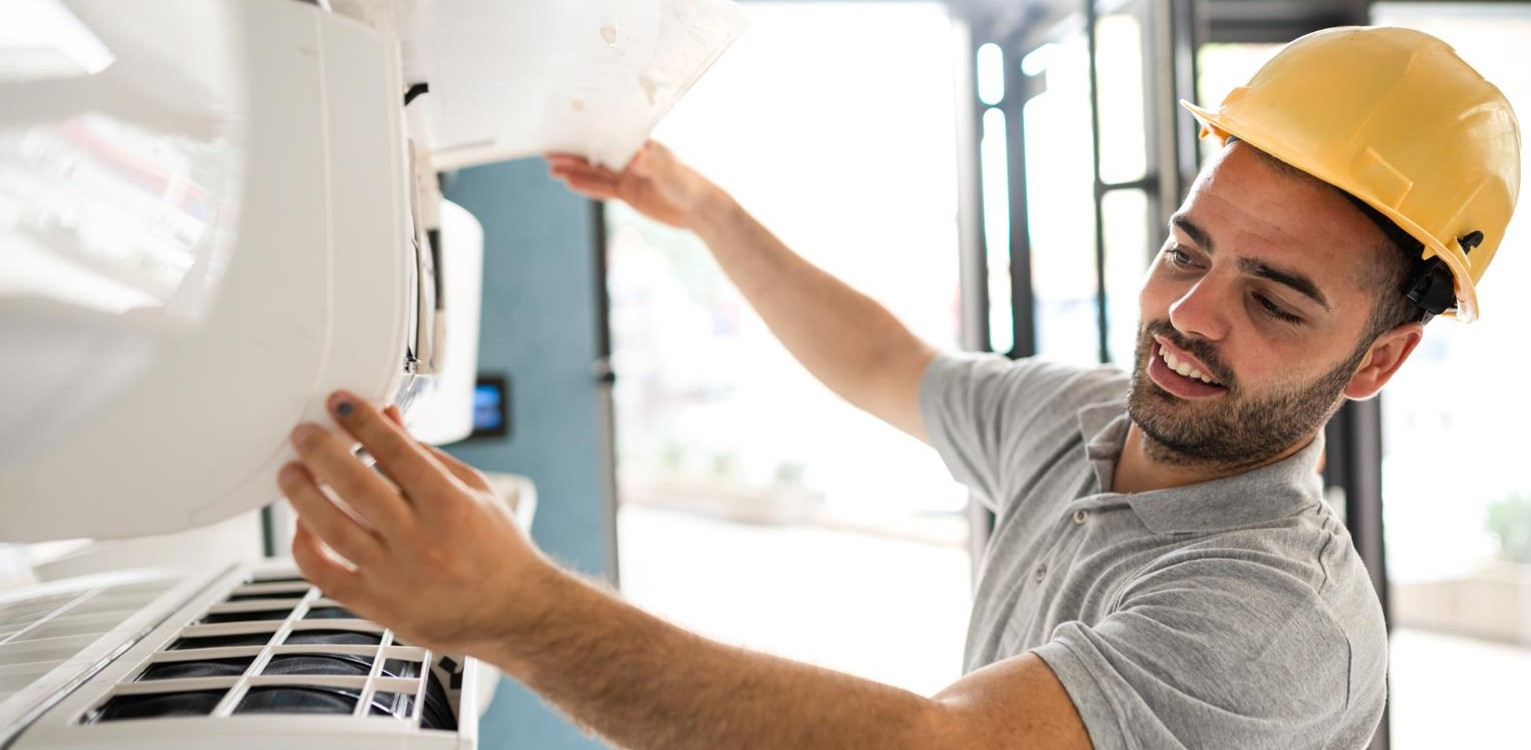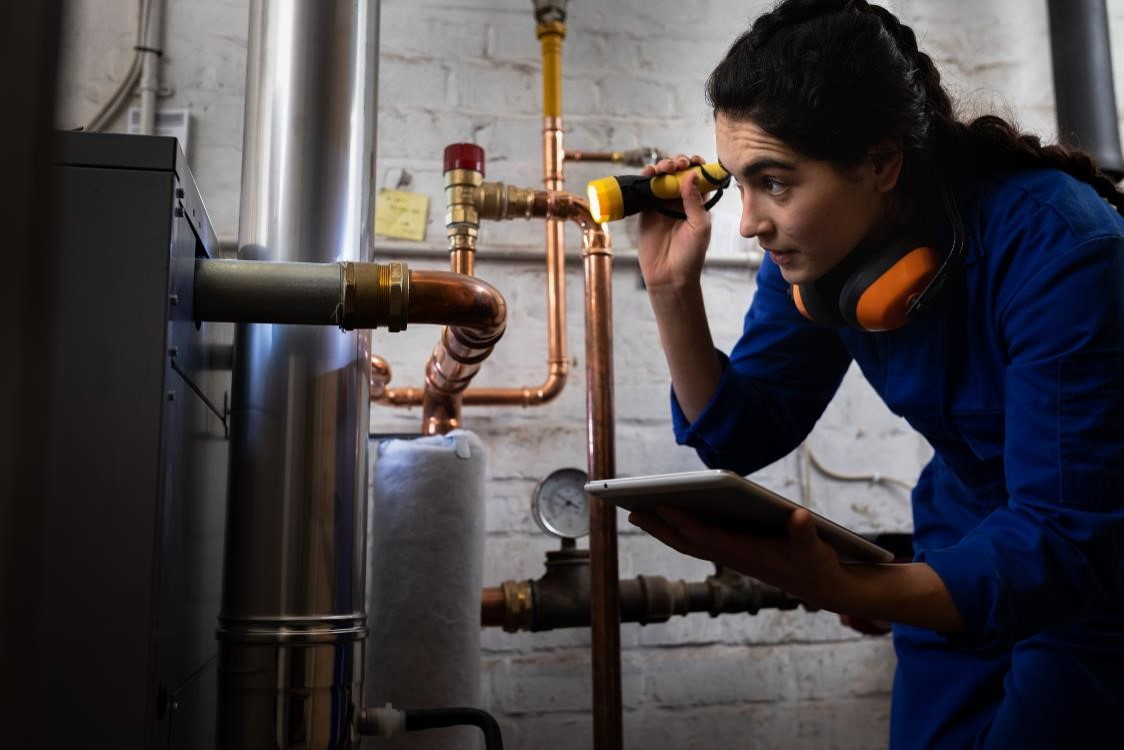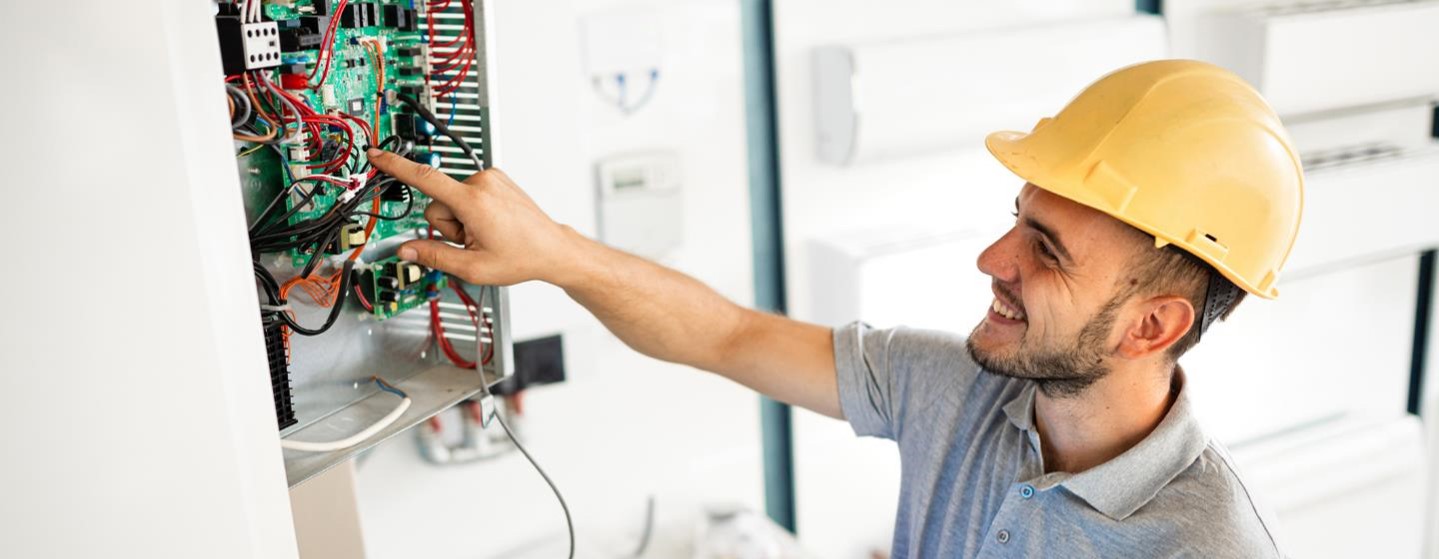How to Become a Maintenance Technician
Explore how to qualify and gain experience as a Maintenance Technician, including the skills employers value and the progression opportunities available.

Overview of the Maintenance Technician Role
It is the job of a Maintenance Technician to make safety checks and analysis to repair and maintain machinery. They must use their knowledge of different trades such as plumbing, electrical and mechanical engineering to perform routine maintenance and repairs to ensure the longevity of machinery to keep production on track and reduce major issues arising with any of the equipment.
You will need to adhere to safety protocols, and have good problem-solving skills and technical knowledge to diagnose issues with machinery and equipment. It is also important to have relevant certification to perform well in this role, which can be obtained through college courses or through apprenticeships where it is possible to gain experience on the job while learning to work alongside other manufacturing specialists.
Find more information in our Maintenance Technician job description guide.

Dress Code
A Maintenance Technician should wear practical, durable workwear such as sturdy work pants, polo shirts or work shirts (usually with a company logo) and closed-toed shoes or steel-toe-capped boots.
Maintenance Technician Responsibilities
A Maintenance Technician is responsible for maintaining machinery by performing regular maintenance and repairs, which will reduce the risk of major problems arising. Using your knowledge of different trades, you should be able to find faults in different areas of machine maintenance and find solutions for them quickly to keep production running smoothly.
Maintenance Technician Tips
Focus on gaining relevant qualifications, such as a Level 2 Certificate in Mechanical or Electrical Engineering, while honing your communication skills and time management abilities to keep productivity high.
Develop strong problem-solving skills to diagnose issues and find relevant solutions quickly, implementing them efficiently to reduce the chance of major problems occurring.
Qualifications and Skills of a Maintenance Technician
A Maintenance Technician should have good knowledge of plumbing, electrics and mechanics, with relevant qualifications in those trades. It is also important to be able to problem-solve to fix maintenance issues.
Knowledge of Plumbing, Electrics and Mechanics
To be able to diagnose problems and repair issues in different areas of a building, it is important to have a strong understanding of plumbing, electrical systems and mechanical principles to find the most effective solution to a problem.
Some issues that will need to be fixed include fixing leaky pipes, troubleshooting electrical circuits, and maintaining machinery. Using these skills and applying them properly will keep production moving efficiently and reduce the chance of further issues.
Problem-Solving Abilities
It is essential that a Maintenance Technician knows how to problem-solve, as equipment issues need to be diagnosed accurately, and effective solutions need to be implemented quickly.
As a Maintenance Technician it is important to analyse the root cause of the problem and think critically to resolve complex problems while making sure systems continue to run smoothly.
Be adaptable to unexpected changes and have a clear mind to solve additional issues that might occur while fixing the initial problem.
Certifications in Relevant Trades
Level 2 and 3 are typically the most relevant qualifications for entry and mid-level Maintenance Technician roles. This can include a Level 2 Certificate in Mechanical Engineering, or a Level 2 Certificate in Electrical or Electronic Engineering Technology.
Higher qualifications can also be achieved, such as a Level 3 Diploma in Engineering Maintenance. To gain these qualifications, consider college courses or an apprenticeship to gain on-the-job experience while you learn.
Machine Operator Job Responsibilities
A Maintenance Technician should have good knowledge of plumbing, electrics and mechanics, with relevant qualifications in those trades. It is also important to be able to problem-solve to fix maintenance issues.
Knowledge of Plumbing, Electrics and Mechanics
To be able to diagnose problems and repair issues in different areas of a building, it is important to have a strong understanding of plumbing, electrical systems and mechanical principles to find the most effective solution to a problem.
Some issues that will need to be fixed include fixing leaky pipes, troubleshooting electrical circuits, and maintaining machinery. Using these skills and applying them properly will keep production moving efficiently and reduce the chance of further issues.
Problem-Solving Abilities
It is essential that a Maintenance Technician knows how to problem-solve, as equipment issues need to be diagnosed accurately, and effective solutions need to be implemented quickly.
As a Maintenance Technician it is important to analyse the root cause of the problem and think critically to resolve complex problems while making sure systems continue to run smoothly.
Be adaptable to unexpected changes and have a clear mind to solve additional issues that might occur while fixing the initial problem.
Certifications in Relevant Trades
Level 2 and 3 are typically the most relevant qualifications for entry and mid-level Maintenance Technician roles. This can include a Level 2 Certificate in Mechanical Engineering, or a Level 2 Certificate in Electrical or Electronic Engineering Technology.
Higher qualifications can also be achieved, such as a Level 3 Diploma in Engineering Maintenance. To gain these qualifications, consider college courses or an apprenticeship to gain on-the-job experience while you learn.
Maintenance Technician Career Progression and Advancement
With enough experience and skills, a Maintenance Technician can advance into senior roles or specialise in certain fields, such as mechanical or automotive.
Advancing to Senior Technician Roles
It is important to gain enough experience and knowledge as a Maintenance Technician before moving into a senior position, while training, try to earn your qualifications as a Maintenance Technician and learn to read blueprints and schematics to understand certain machinery better.
Gain confidence in working alone and within a team to help you work on large-scale, more complex maintenance problems, and gain leadership skills to be able to lead maintenance teams so that they can effectively work together to solve any maintenance issues.

Specialising in Particular Fields
A Maintenance Technician can often specialise in a particular field such as mechanical maintenance, HVAC maintenance, aircraft maintenance, fleet maintenance or automotive maintenance. To progress into a specialist field, you will need to gain knowledge and experience in that field.
Gain specific qualifications and try to gain experience within your current position to learn more about the field you’re interested in and continue to strengthen your problem-solving skills to work with certain machinery.
FAQs on Becoming a Maintenance Technician
Is a Maintenance Technician a Secure Job?
Yes, a Maintenance Technician is generally considered a secure job, as there is a consistent demand for workers with these skills across various industries.
What Qualifications Do I Need to Be a Maintenance Technician?
A Maintenance Technician will typically need relevant certification such as a Level 2 Certificate in Mechanical or Electrical Engineering, or a T Level in Maintenance, Installation and Repair for Engineering and Manufacturing. These qualifications can also be gained through an apprenticeship.
How Much Does a Maintenance Technician Earn in the UK?
A Maintenance Technician can expect to earn around £32,000 per year in the UK. This will depend on experience, industry sector and location.
What Does a Maintenance Technician Do?
A Maintenance Technician keeps machinery and equipment in working order by performing regular maintenance and emergency repairs on any broken machinery.


